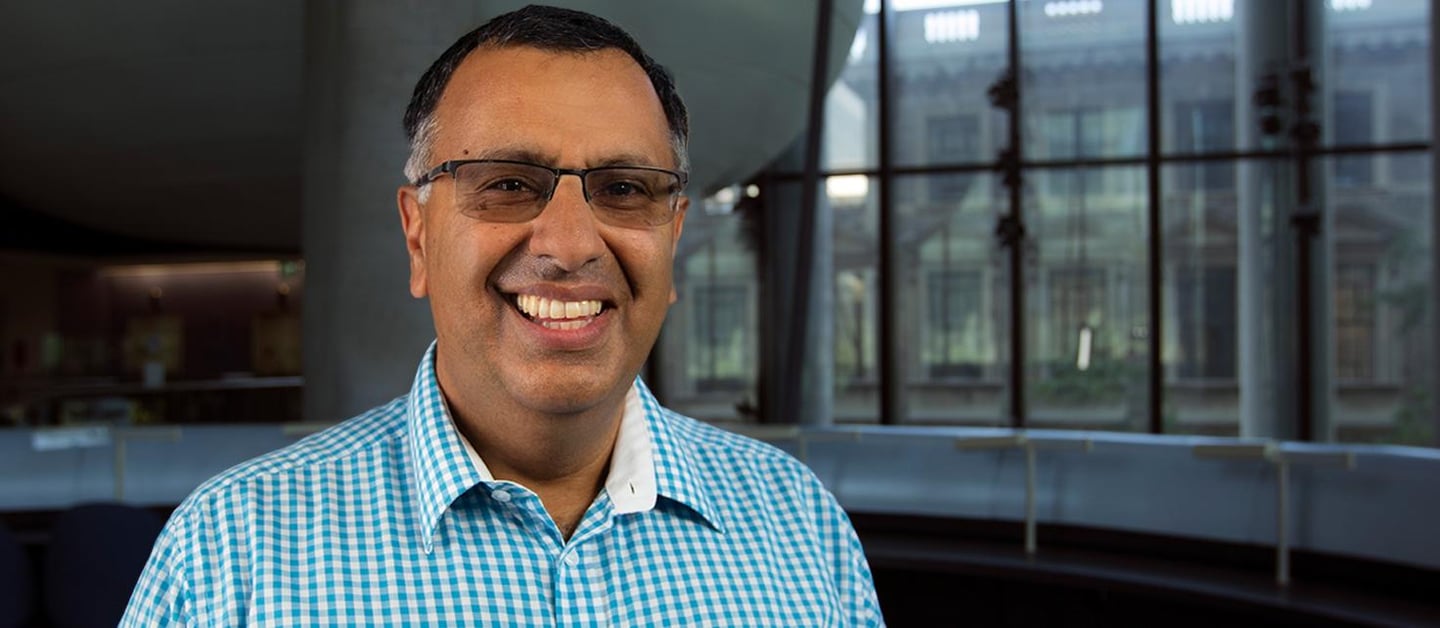Pharmacy U Q&A with Zubin Austin: "As pharmacists, the work we do is grounded in reality."
Dr. Zubin Austin’s role involves three key responsibilities: teaching pharmacy to graduates and undergraduates; conducting health human resources workforce research while supporting masters and PhD students; and contributing to the profession and the community. “We aim to develop and implement innovative solutions at the community level that will help everyday pharmacists and pharmacy managers incorporate evidence-informed, cutting-edge practices into their daily work, which will ultimately benefit patients in communities across Canada.”
Snapshot
Education: University of Toronto (Pharmacy, Business)
Current role: Professor and Murray B. Koffler Chair in Pharmacy Management, University of Toronto
What intrigued you about being a pharmacist? Why did you opt to become part of this profession?
I was in the right place at the right time. I got into pharmacy immediately out of high school. As a class, we were nice kids who did well in math and science, and we wanted to do something to help people. Pharmacy was a good fit. But I must admit, I didn’t know what to expect. Frankly, I found the educational system underwhelming, but once I was out working, I knew I’d found my passion. Now I pass on that passion to a whole new generation of pharmacists-in-the-making. I strive to make education engaging and relevant.
What do you think the future holds for pharmacy?
For many pharmacists, this is a time of extraordinary opportunity to make an impact. For some, however, it will mean a lot of stress. Other pharmacists will soar. Now differentiation is the name of the game. The changing environment demands a willingness to take risks and be flexible. Our society is changing fundamentally. The things we took for granted in our profession are no longer in some cases even necessary. These are not uncharted waters we want to – or should – navigate alone.
Are pharmacy schools breaking new ground in Canada? How does your school work to foster innovation among the next generation of pharmacists?
As pharmacists, the work we do is grounded in reality. It is not abstract. Education needs to reflect this real-world foundation. We need to bring the war stories into the classroom. Teaching is more informed today, and research has practical implications. Ultimately, students need to be engaged. They must connect with professionals, peers, and patients. That requires a whole new model of practice. As educators and pharmacists, we cannot stand in the background. As we step up – as a partner in the education of future pharmacists – students are better prepared when they graduate. The profession benefits. Patients benefit.
How does the value of strong partnerships during changing times help advance the work of pharmacy?
It’s all about understanding the value of the very high-touch, interpersonal world we live in. Connections are inherent in the fabric of our interactions today, and partnerships are a concrete representation of that. We move forward leaps and bounds by building partnerships one step at a time. Of course, we’ve always had relationships with colleagues, educators and patients, but partnerships are an important a way to formalize those informal relationships. Students today have been learning in teams since they were in kindergarten. Working together comes naturally to them, and that bodes well for the future of our profession and the health of our patients.
Personally, how do you build strong partnerships during changing times?
In a word: collaboration. It is essential to connect with other professionals, other organizations, other players in healthcare. You cannot function effectively anymore without diverse and sustained partnerships. They provide us with an opportunity to see issues through other people’s eyes. It’s a new and essential lens. We also have to invest in those coming up behind us. What better way to do this than in partnerships that make life healthier for Canadians?

